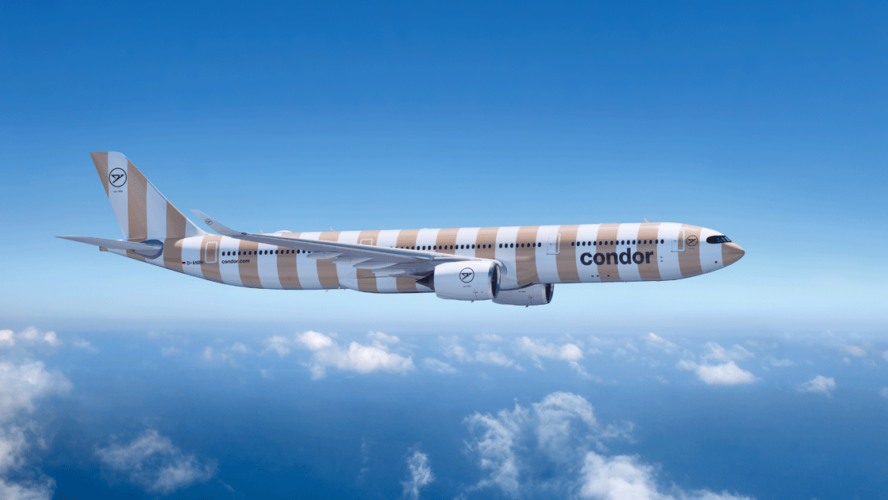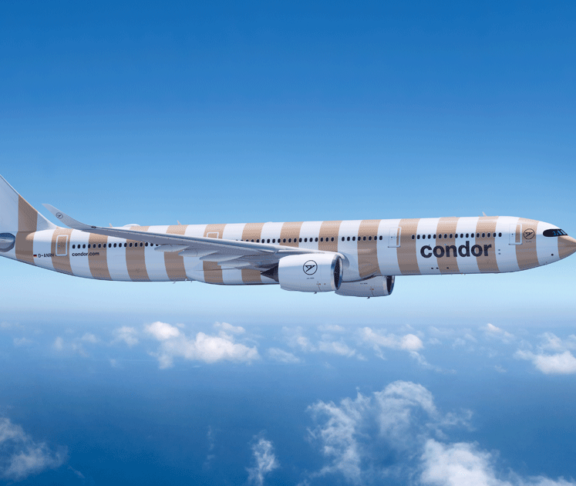Travel is essential for our mental and social well-being, and it can be more affordable and sustainable than you might think.
International travel is a cure-all. Vacation and leisure are some of the most surefire remedies for the psychological pressures and mental health challenges of modern life. Moreover, the broadening of perspective inherent in exploring new places and unfamiliar cultures is a powerful antidote against a broad range of social ills. Travel makes people happier, healthier, and more open-minded. And the more freely we can encourage people to explore the globe, meet new friends, see new sights, learn new things, the more welcoming and vibrant our homes become.
Yet, even as we anticipate the myriad benefits of travel, even as we yearn to adventure far and wide, we must contend with two less comfortable truths about conventional air travel. The cost can be prohibitive, especially for the disadvantaged. And the carbon impact of aviation can be significant, at a time when the future of the climate is everyone’s top priority. Some airlines, however, are working very hard to make travel both more sustainable and more affordable. With the fuel efficiency gains of modern aircraft, flying can be much greener and more accessible than you might think.

Condor Airlines, operating out of Germany since 1956, has recently reimagined itself with a strong focus on sustainability and affordability. Condor’s fleet of planes, dressed in vibrant stripes, has been bolstered with 18 state-of-the-art Airbus A330neo long-haul aircraft. This new plane boasts high tech noise reduction systems and an exquisitely designed cabin for maximum comfort at a low operating cost. It is also a huge leap forward in responsible aviation, carrying 310 passengers at a fuel efficiency of just 2.1 liters per passenger per 100km. This is not only a massive gain compared to aviation industry standards, it is also significantly more carbon efficient than travelling by car over the same distance. Many modern internal combustion automobiles burn five or more liters per 100km, and a very large portion of car journeys carry only a single passenger.
With destinations in Europe, Asia, Africa, South America, and North America — including Toronto, Vancouver, Montreal, and many others in Canada — Condor’s sustainable approach to aviation is opening the globe up to responsible travellers worldwide. The company’s commitment to smart environmental citizenship does not end with high-efficiency aircraft however. Within Germany, the airline also offers an innovative Rail & Fly system which connects passengers from the rail network to their flight on a single fare, reducing the need for emissions-heavy vehicle transport to and from airports.
When you are booking your tickets, you are empowered to align yourself with a carrier that is pulling out all the stops to make sustainable and affordable travel available to all.
Branding itself as a leisure airline — with it’s colourful striped livery meant to evoke parasols and beach towels — Condor is well aware of the importance of travel and holiday, not only for quality of life and mental health, but also as a way of opening our mind to the diversity and totality of the human experience. We gain so much benefit from travel, whether our destination is near or far, and Condor is working to make those trips available with a clear conscience to even the most climate conscious traveller. In addition to the 18 A330neos currently curbing emissions on their long haul flights, Condor will also be adding 41 similarly efficient short- and medium-haul A32Xneo aircraft to their fleet by 2024, when the A330neo will also be in full operation.
And so, as the summer gets into full swing and visions of far-flung and exotic locales begin to flash more and more frequently through our minds, keep in mind also that these sorts of adventures can be accessible, that they can come with a far lower price — both in dollars and in climate impact — than you might think. Aviation on the whole does remain a carbon concern that we will collectively need to address, but solutions are already beginning to take shape. Accessible travel is our gateway to a healthier future both individually and as a society, and we are able to choose that future while also embracing climate responsibility. We have this choice because not all aircraft — and not all airlines — are created equal. When you are booking your tickets, you are empowered to align yourself with a carrier that is pulling out all the stops to make sustainable and affordable travel available to all.
Choose sustainability at condor.com.




